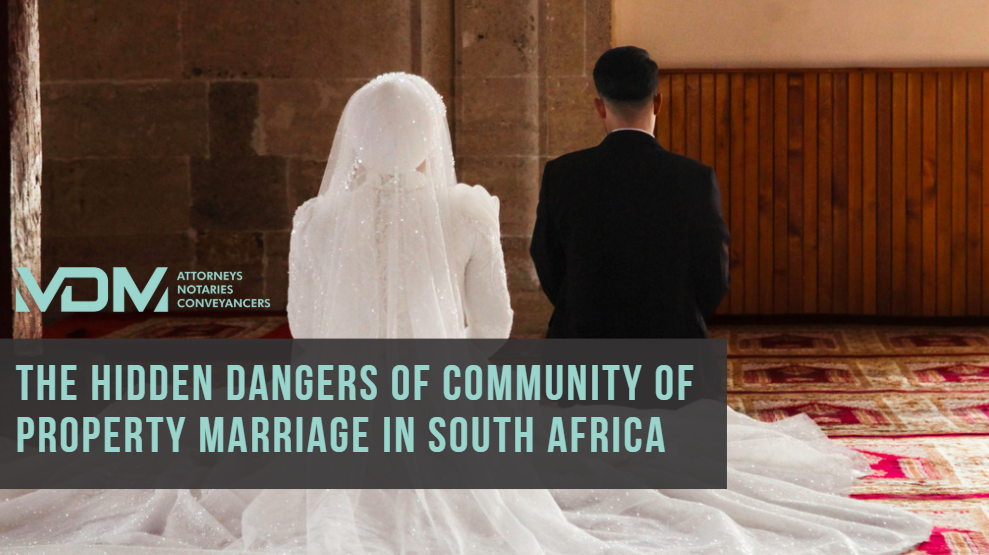
When couples marry in South Africa without signing an antenuptial contract, they automatically fall under the default system: marriage in community of property.
At first glance, it sounds fair and romantic - everything you own and owe is shared equally. But in practice, this system can be dangerous, restrictive, and unfair, especially for a spouse who is not involved in or does not fully understand the family finances.
Why Couples Enter Into Community of Property
Most couples don’t actively choose this system - they default into it because:
- They didn’t realise they needed to sign an antenuptial contract beforehand;
- They assumed it was the “normal” or “cheapest” option; or
- They were misinformed, often believing it’s more protective or simpler.
The reality is that many South Africans marry in community of property due to lack of information, not because it’s the best choice for their circumstances.
The Dangers of Community of Property
1. Shared Debt Liability
If one spouse racks up credit card debt, business loans, or even acts recklessly with money, the other spouse is equally liable. Creditors can attach joint assets, even if the “innocent” spouse never signed the loan documents.
2. Loss of Financial Independence
Neither spouse can make major financial decisions alone. Selling property, taking out a bond, or even buying certain assets requires both spouses’ signatures. This can slow down opportunities and limit financial freedom.
3. Risk to the Non-Financial Spouse
In many marriages, one spouse takes charge of finances while the other focuses on the home or family. In a community of property marriage, the uninvolved spouse can suddenly find themselves legally responsible for debts they never knew existed.
4. Business Ownership Complications
If one spouse owns a business, it automatically forms part of the joint estate. This can cause complications with creditors, tax, or even during divorce - the other spouse is legally entitled to half of the value.
5. Divorce and Insolvency Risks
-
In divorce, everything - assets and debts - is split 50/50, regardless of who contributed what; and
-
If one spouse is declared insolvent, the other spouse’s assets are also at risk because the estate is shared.
Restrictions of the System
- Consent requirements: Both spouses must consent in writing to sell property, enter credit agreements, or bind the estate.
- Equal ownership, unequal control: While ownership is equal, in practice the financially stronger or more informed spouse often dominates decision-making.
- No easy exit: You cannot change your marital regime without a High Court application, which is costly and complex.
What Are the Alternatives?
- Marriage Out of Community of Property (without accrual): Keeps each spouse’s estate separate. What’s yours stays yours.
- Marriage Out of Community of Property (with accrual): Keeps estates separate during marriage but allows fair sharing of growth at divorce or death.
These systems offer flexibility, protection, and fairness - without the risks of shared debt and loss of independence.
Final Word
Community of property marriage might sound simple, but it carries serious financial risks - especially for the spouse who is less financially involved. Many couples enter into it because of misinformation, not because it’s the right fit for them.
At VDM Attorneys, we believe every couple should make an informed choice about their marital regime. Our notaries draft antenuptial contracts tailored to your needs and guide you on the legal and financial implications before you say “I do.”
📞 Contact us today to discuss antenuptial contracts and protect your future with the right legal advice.